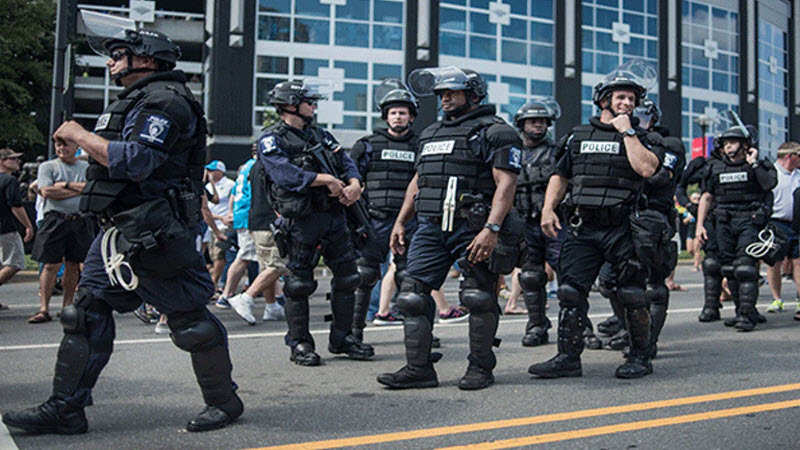

By Ayanna Gandhi
GEORGIA – The ACLU of Georgia has announced it is opposing the inclusion of officers as a guarded class, in legislation now being considered in the Georgia Legislature.
Late on June 22, 2020, the Georgia Senate Rules Committee changed the language that had been in HB 426 and sneaked it into House Bill 838. The small change actually has a big impact; it allows first responders the ability to use violence against its own citizens with impunity.
This change comes at the heels of the brutal murders and acts of police brutality toward Rayshard Brooks, Ahmaud Arbery, and many other African American men, making people of color in Georgia extremely frustrated with their legislation.
This recent addition is an extension of history, according to the ACLU.
In 1974, following the case Lewis v. New Orleans, the U.S. Supreme Court made it a crime “for any person wantonly to curse or revile or to use obscene or opprobrious language toward or with reference to a city officer.” They also decided that if a well-trained police officer is verbally abused, they are permitted to take harsher action to a “reasonable’ extent.” However, this  reasonability is not specified.
reasonability is not specified.
Thirteen years later, the Supreme Court made it a crime to “oppose or even interrupt any policeman” in the “performance of his duties.”
In 2017, the Georgia General Assembly passed Senate Bill 160, which stated harsher punishments for abuse and assault against law enforcement. This new 2020 bill is simply an amendment on to Bill 160.
The Georgia ACLU argues that additional protection for police is not needed, noting that the Georgia code already lists protections for police, as mentioned above, including serious penalties for any type of abuse toward an officer.
Andrea Young, executive director of the ACLU of Georgia, said, “This legislative action in this moment pours salt in the wounds of the Georgians of all races and backgrounds who are participating daily in protests calling for the reform of policing and expressing their support for black lives.”
Young continues, “Additionally, this provision undermines the officers who strive to obey their oath of office and uphold high standards in their interactions with the public. We oppose HB 838 in its current form and will explore all options to protect the First Amendment rights of Georgians.”
However, opponents to the measure said the biggest debate is about boundaries and what verbal assault is classified as, explaining that in Pennsylvania, a Black man “called the police ‘Nazis,’ ‘skinheads’ and ‘Gestapo,’ and the state charged him with a hate crime.”
Civil libertarians ask, what is the difference between protected speech and criminal speech, and where should we draw a line?
Joshua Vaughn, a writer for the online site called “The Appeal,” argues that this line is becoming obscure, charging that in “Pennsylvania’s hate crime statute called ethnic intimidation—defined as malicious intention toward the race, color, religion or national origin of another individual or group of individuals.”
Mary Catherine Roper, deputy legal director for the ACLU of Pennsylvania, maintains, “This is not what the hate crime statute was for. This is criminalizing pure speech and that violates the First Amendment.”
The Georgia ACLU is using the Pennsylvania story to argue against more protection for officers.
The ACLU charges, “Amidst a rising tide of actual hate crimes, creating a false category is morally outrageous and has been unconstitutional for nearly a half-century. Why should police officers get special protection especially since they are the ones killing citizens?”
The ACLU said that boundaries need to be made and police officers should not be given more liberties than they already have. Not only do police have too much power, the ACLU said, but they also use the powers they have in discriminatory ways, as seen in Pennsylvania.
To sign up for our new newsletter – Everyday Injustice – https://tinyurl.com/yyultcf9
